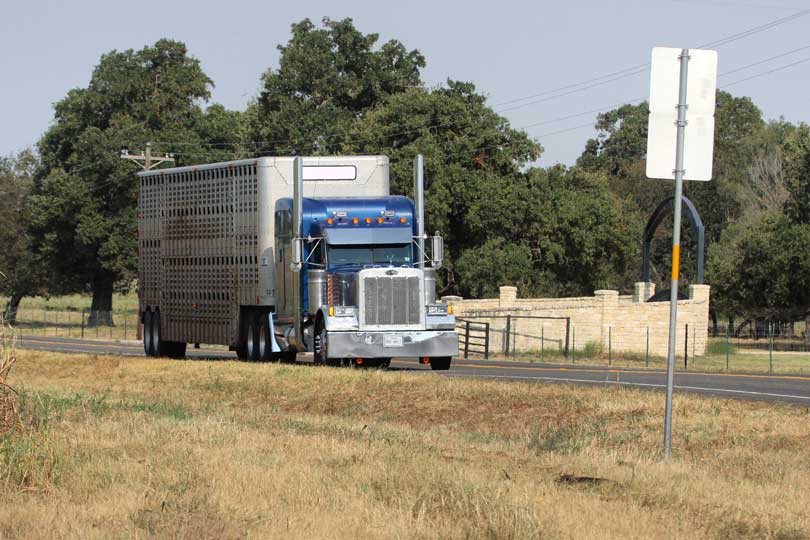By Julie Tomascik
Editor
Citing concerns for livestock care and biosecurty, Texas Farm Bureau (TFB) urged the Department of Transportation (DOT) to give livestock haulers flexibility in meeting certain hours of service requirements. This would allow the haulers to better address the unique needs of the live animals they’re transporting while still prioritizing road safety, the organization said.
TFB’s comments were submitted to DOT and the Federal Motor Carrier Safety Administration in early March.
“American agriculture is a dynamic enterprise that feeds our country and the world and is a vital sector of our national economy,” TFB wrote. “Just as there cannot be a ‘one-size-fits-all’ approach to agriculture, there shouldn’t be a ‘one-size-fits-all’ regulation when it comes to government mandates.”
TFB submitted comments in response to a petition filed by the American Farm Bureau Federation and other groups asking that DOT allow livestock haulers who meet certain requirements to drive 15 hours during a 16-hour work day and rest the currently required 10 hours.
Current rules limit drive time to 11 hours and limit on-duty hours to 14.
The requirements include completing fatigue management training, having a sufficient safety record and being willing to follow certain documentary requirements.
“We believe that the existing 11- and 14-hour rules were not drafted with livestock haulers in mind, and thus do not accommodate the unique character of their loads and nature of their trips,” TFB said. “Livestock hauling is like no other, and therefore, requires flexibility due to the many circumstances that go along with hauling live animals.”
Although some scenarios only require drivers to haul livestock short distances, others do not. That, TFB said, is the reason the additional four hours of drive time is necessary to complete the longer hauls between where cattle are born, fed and harvested.
The additional drive time would also be beneficial for animal welfare, because the animals rely on a moving trailer for airflow and to keep them comfortable. For that reason, industry guidelines mandate that drivers avoid any stops while hauling livestock, especially in warmer weather.
“Clearly, the majority of livestock cannot withstand the stress of 10 hours stopped without airflow or the added time on the trailer necessitated by such an extended rest,” TFB said.
The other option, TFB said, would be to unload livestock for a 10-hour break, but that isn’t feasible.
TFB noted livestock rest areas along the interstate system are limited, and the potential for injuries increases during the unloading and reloading processes, as well as presenting biosecurity risks due to comingling animals at an in-transit stop.
“Drivers who reach driving time limits while hauling animals will face a difficult decision: comply with animal welfare laws and guidelines or comply with hours of service rules,” TFB said.
As the exemption petition states, by completing extra training and conducting trip planning activities, livestock haulers can use the extra drive time in an equally safe manner.
TFB also believes the current hours of service rules do not take full advantage of modern fatigue management research and the experience of other countries showing that on-duty time limits alone are not optimal tools for managing operator fatigue in the livestock hauling industry.
The exemption would allow livestock haulers the ability to more appropriately manage their own rest and work schedules to ensure both the well-being of their livestock and the safe operation of the commercial motor vehicle, TFB said.
U.S. Secretary of Agriculture Sonny Perdue said some resolution regarding ELDs and hours of service requirements is expected soon. Click to hear more on the Texas Farm Bureau Radio Network.

